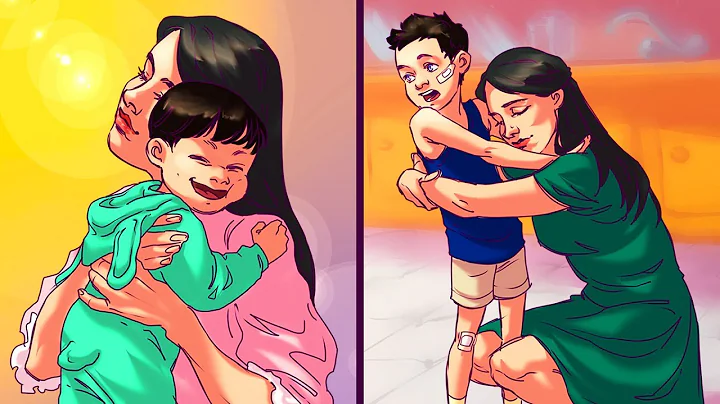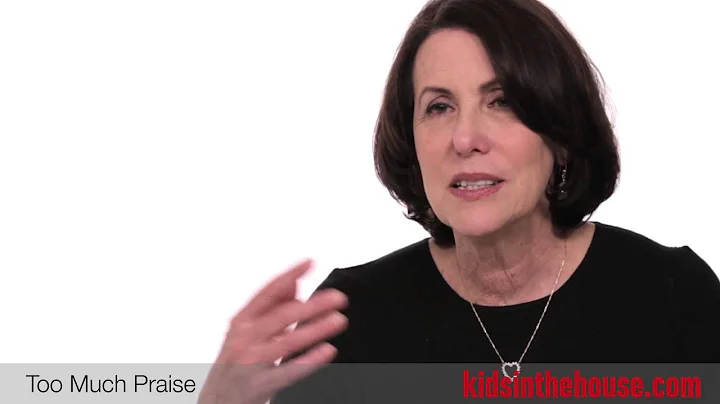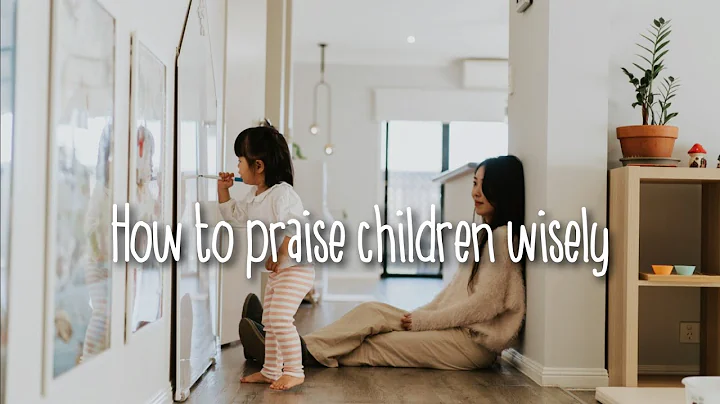Modern parents all know that good children are praised, but do you really know how to praise your own children? In fact, many parents do not praise their children, and some teachers even do not praise their children.

Praising children is a skill. If you praise them well, the children will sing all the way and be invincible. So how do you praise children? Let me teach you how to praise your child who is loved by everyone!
First of all, you must know that there are principles for praising children. Only by following the principles of praise can the children grow up smoothly. Otherwise, the praise will be in vain. If not, the more you praise, the more the opposite will happen. These four principles are:

One must follow the principle of "the day after tomorrow" . That is, when we praise children, we should try to praise the factors of the child's acquired growth rather than the factors that are innate. For example, instead of praising a child for being beautiful, praise him for being well-dressed. Instead of praising him for being smart, praise him for being hard-working and diligent. Because congenital inheritance has nothing to do with him, if he thinks he is smart, he will give up his efforts.

Second, we must follow the "seven points" principle . When praising a child, don't praise it too much, let alone exaggerate it. You should leave room for praise and give him more room for improvement. If, like some old ladies, they praise their grandson to the sky, the fall will be even worse! When praising your children, you must control the right level and try to be sincere and true. Don't think that your children are exaggerated and fake praises when they are young.
Third, we must follow the principle of "unity" . Praising children should be done in the same order, and family members should be consistent in their opinions. I can't praise when I'm happy and vice versa when I'm unhappy. It's not okay to follow the parent's mood and preference. It's also not allowed for members to have different opinions, with one praising and the other disparaging. It's not a question of tolerance and strictness. This leaves the child at a loss. Strict people don't have to praise, but they can't disagree.
Fourth, we must follow the principle of "specificity" . Praising children should not be done in general terms, but should be implemented on specific issues. For example, many parents often talk about "you are awesome", "give you a thumbs up", etc., which are all invalid praises. Because the content of praise is vague. For example, if your child does well in an exam, you praise him for being great, but it is not clear. You should praise him for his usual hard work or for his hard work in review. These are the specific details. Principle 1 also applies here, let alone praise him for being smart.

So how do you praise it specifically? According to the research of our peer education experts, the following 14 specific aspects of children can be praised consciously:
1 Praise for hard work: You really worked hard to complete this task today, and you will definitely be able to do better next time!

2 praises attitude: You always stare at the blackboard in class, your attitude towards learning is so good!
3 praises persistence: You are worthy of praise for persisting in such a difficult movement. Mom is proud of you!
4 praises thinking: Your ideas are very valuable and very interesting.
5 praises the habit: You put all the used items in their place. This is a good habit and will last a lifetime.
6 praises kindness: You can help the weak, you are such a kind child.
7 praises independence: You can cook and eat by yourself today. You have learned to be independent and responsible.
8 praises your courage: You didn’t panic at all on stage today, you are so brave!
9 praises your credit: You remember the promise you made to dad, you are indeed a man of your word.
10 praises your carefulness: You discovered such a small problem, you are so attentive.
11 praises creativity: Your idea is very innovative. You are the only one in the class who has thought of it. It’s great to think divergently!
12 praises cooperation: The game you played with your partners today was really interesting. I didn’t expect you to cooperate so well.
13 praises leadership: In the group activities of your class, the teacher said that you are the protagonist and you have leadership skills!
14 praises your sense of responsibility: You are really responsible on duty, and you will definitely be a responsible person in the future!
I know it’s tiring for you to teach your children, but if you don’t educate your own children well, you will be even more tiring for the rest of your life!





















